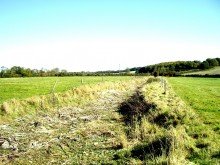In a collaboration between more than 50 nature conservation organisations, including the Wildlife Trusts, the 2016 State of Nature report* has revealed that half of the UK’s native species are in decline, with 15% facing extinction.
Many common species like the song thrush, house sparrow, hedgehog and native bluebell are fewer in number, and wildlife-rich habitats have become increasingly scarce.
Locally, major projects led by Dorset Wildlife Trust (DWT) have been tackling these problems head-on with large scale wildlife restoration projects designed to reverse this decline.
Dorset Wildlife Trust’s Director of Conservation, Imogen Davenport said, “The State of Nature report reveals some worrying information about long-term wildlife decline across the UK, but it also states that success can be achieved with well-planned conservation projects locally, to help restore sites and re-create habitat for wildlife to thrive in. Dorset Wildlife Trust has already launched a number of major conservation projects, and seen successes for wildlife locally.”
One project which DWT has been working on since 2010 with partners** from the Dorset catchment partnerships***, is the Dorset Wild Rivers project; a major river restoration project which has improved 14km of chalk stream and rivers in Dorset.
DWT Conservation Officer, Jacob Dew said, “Through the Wild Rivers Project, we have restored rivers for the benefit of a whole range of wildlife. We’ve already seen an increase in fish populations, such as brown trout, in the areas which have been restored and salmon have been found on the upper stretches of the River Frome for the first time. Rare Winterbourne mayfly and blackfly have also both increased their range on the South Winterborne due to our work. Volunteers have spent over 4,000 hours helping us complete our work, whether that’s pulling invasive Himalayan balsam, carrying out bird surveys, or training up to be Riverfly monitors, this is a great example of how a local conservation project can make a huge difference to wildlife and people on a county level.”
The State of Nature report 2016 states that wildlife is in trouble. DWT is already succeeding in some habitats in reversing the decline in Dorset, but to do this, we need the passion and help from those who share our vision of fighting for the things we love. We need local people to say YES to wildlife.
To download the state of nature report and find out more about how you can support the work of DWT by saying YES to wildlife, visit www.dorsetwildlifetrust.org.uk.







